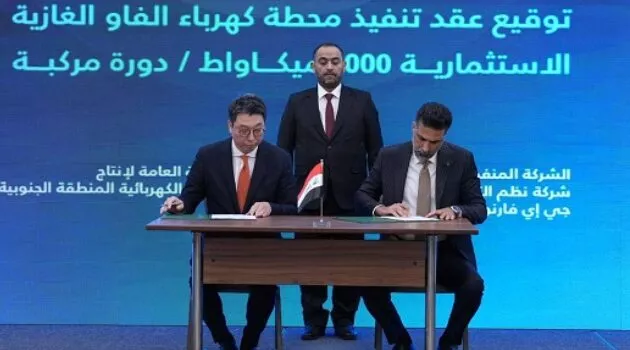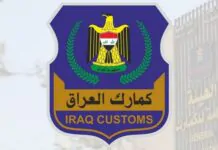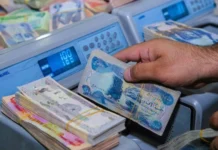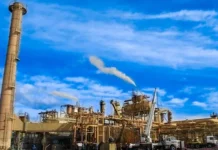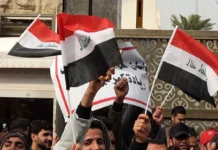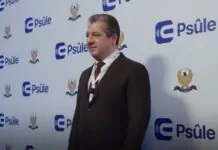raq Signs Landmark Deal for 3,000 MW Al-Faw Gas Power Plant — Southern Region’s Biggest Energy Project
Basra — The Iraqi Ministry of Electricity has officially signed a major contract for the construction of the Al-Faw Gas Power Plant, a 3,000-megawatt combined-cycle project that will become the largest investment-based gas-fired station in southern Iraq.
The plant will be developed by GE (General Electric), in partnership with Advanced Technology Systems Company, under a “Take and Pay” model — meaning the government will only pay for the actual electricity delivered to the grid.
In a significant shift from previous contracts, the investor company will also handle the gas supply required for the plant’s operation, making it a fully integrated project from fuel supply to power generation.
High-Tech Power and Water Solutions
The Al-Faw plant will include four high-efficiency gas turbines and two steam units, designed to maximize energy output while minimizing emissions.
It will also feature an advanced seawater desalination system, allowing the plant to meet its own cooling and operational water needs without relying on freshwater resources — a key advantage in southern Iraq’s arid climate.
According to ministry officials, the project will provide a major boost to Iraq’s national grid, helping stabilize electricity supplies across Basra and surrounding provinces.
Minister Praises Government Support
During the signing ceremony, Minister of Electricity Ziyad Ali Fadel thanked Prime Minister Mohammed Shiaa Al-Sudani for his “continued and direct support” for the country’s energy sector.
He said the government has been actively removing bureaucratic and logistical barriers that previously delayed major power projects, paving the way for faster construction and better investor confidence.
“This project reflects the Prime Minister’s vision for a strong, self-reliant energy sector that can meet Iraq’s growing power needs,” Fadel stated.
Why Al-Faw? Strategic and Symbolic
The Al-Faw site was chosen for both its strategic location and symbolic value.
It lies close to the Grand Faw Port, one of Iraq’s most ambitious infrastructure projects, and near the new electrical interconnection line with Kuwait — the Wafra–Faw transmission link.
This makes the plant not only an energy hub for Iraq’s south but also a key part of the regional power-sharing network connecting Iraq to its Gulf neighbors.
Basra’s Growing Energy Capacity
Minister Fadel noted that Basra now operates 15 power stations with a combined output of around 7,000 megawatts — well above the province’s actual demand of about 5,000 MW.
The surplus electricity is being exported to neighboring governorates through newly completed 400 kV transmission lines, helping balance the national grid and reduce outages elsewhere in Iraq.
“With the Al-Faw plant online, Iraq will be one step closer to achieving full energy independence and stability,” the minister added.
Part of a Larger Power Vision
The Al-Faw project is just one part of a broader energy expansion plan led by the Ministry of Electricity.
Current initiatives include:
- The 1,000 MW Shams Al-Basra Solar Project, a major renewable energy push in the south.
- Ongoing rehabilitation and efficiency upgrades at the Hartha Power Plant.
- Several new investment opportunities under negotiation, focused on both traditional and renewable energy.
These projects aim to create a balanced and sustainable power system, combining gas, solar, and cross-border interconnections to meet Iraq’s future electricity needs.
A Step Toward Self-Reliance
Officials emphasized that the “Take and Pay” model used in the Al-Faw contract represents a new generation of investment agreements that protect public funds while encouraging private participation.
By ensuring payment only for actual electricity delivered, Iraq minimizes financial risk and incentivizes investors to build efficient, high-performance plants.
The addition of gas supply responsibilities under the same contract also streamlines operations and improves reliability.
Looking Ahead
The Al-Faw Gas Power Plant is expected to begin construction soon, with completion planned in phases.
Once operational, it will deliver enough power for millions of homes and businesses, create thousands of local jobs, and serve as a cornerstone project in Iraq’s long-term goal of achieving 24-hour electricity nationwide.
“This is not just about more power,” Minister Fadel said. “It’s about building a stronger future for our people and giving every Iraqi a stable, modern life powered by progress.”
